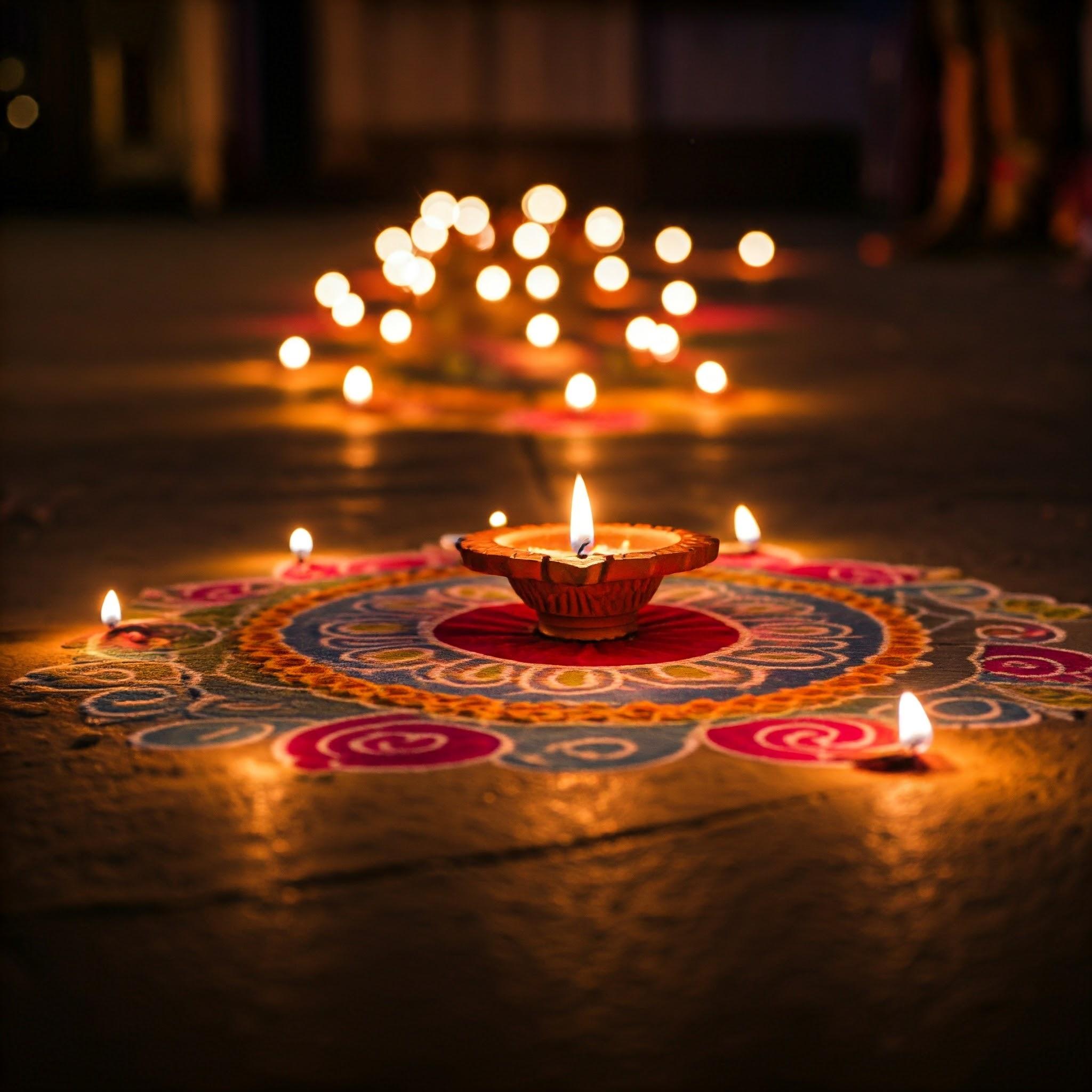What is Diwali??
Diwali, also known as the Festival of Lights, is one of the most important Hindu festivals celebrated in India and by Indian communities around the world. It usually lasts five days and symbolizes the victory of light over darkness and good over evil.
The festival is marked by various traditions, including:
-
Lighting Diyas: Small oil lamps called diyas are lit and placed around homes and in public spaces to symbolize the triumph of light.
-
Rangoli: Colorful designs made from colored powders, rice, or flower petals are created on the ground to welcome guests and bring good luck.
-
Fireworks: Fireworks and firecrackers are set off to celebrate the joyous occasion and ward off evil spirits.
-
Puja (Worship): People perform rituals and prayers, particularly to Goddess Lakshmi, the goddess of wealth and prosperity.
-
Feasting and Gifting: Families gather to share festive meals, sweets, and exchange gifts.
Diwali typically falls in October or November, depending on the lunar calendar. Each day of the festival has its own significance and traditions, making it a time of joy, family bonding, and spiritual renewal.
The Story Of Diwali
The story of Diwali is rooted in various legends and traditions, with the most well-known being the return of Lord Rama to Ayodhya after defeating the demon king Ravana. Here’s a brief overview of this and other key stories associated with Diwali:
-
Rama’s Return: In the Hindu epic Ramayana, Lord Rama, his wife Sita, and his brother Lakshmana return to their kingdom of Ayodhya after 14 years of exile and a fierce battle against Ravana. The people of Ayodhya celebrated their return by lighting diyas and decorating the city with flowers, symbolizing the victory of light over darkness.
-
The Legend of Lord Krishna: In some regions, Diwali commemorates Lord Krishna’s victory over the demon Narakasura, who terrorized the people. Krishna’s triumph is celebrated as a victory of good over evil.
-
Worship of Goddess Lakshmi: Diwali is also associated with the worship of Goddess Lakshmi, the goddess of wealth and prosperity. It is believed that she visits homes on Diwali night, and people perform puja to invite her blessings for the coming year.
-
The Jain Perspective: For Jains, Diwali marks the day Lord Mahavira attained nirvana, or spiritual liberation.
-
Sikh Celebration: For Sikhs, Diwali is significant as it marks the release of Guru Hargobind Ji from imprisonment. The Golden Temple is beautifully illuminated, and fireworks are part of the celebration.
These stories highlight the themes of victory, prosperity, and spiritual enlightenment, making Diwali a joyous occasion celebrated with various customs and rituals.

